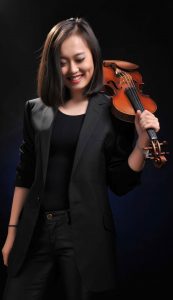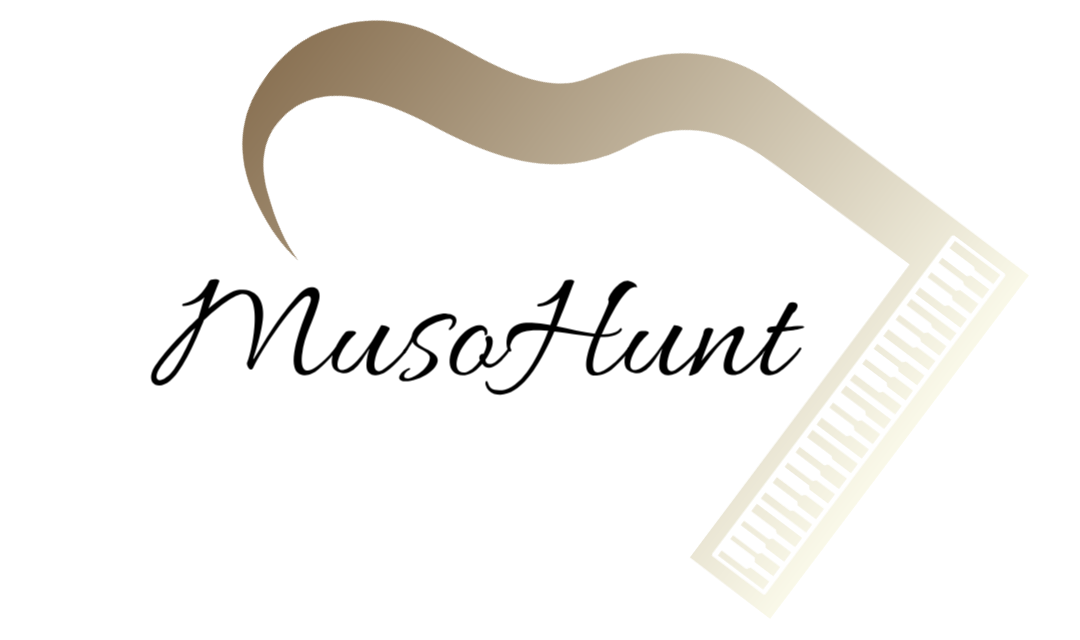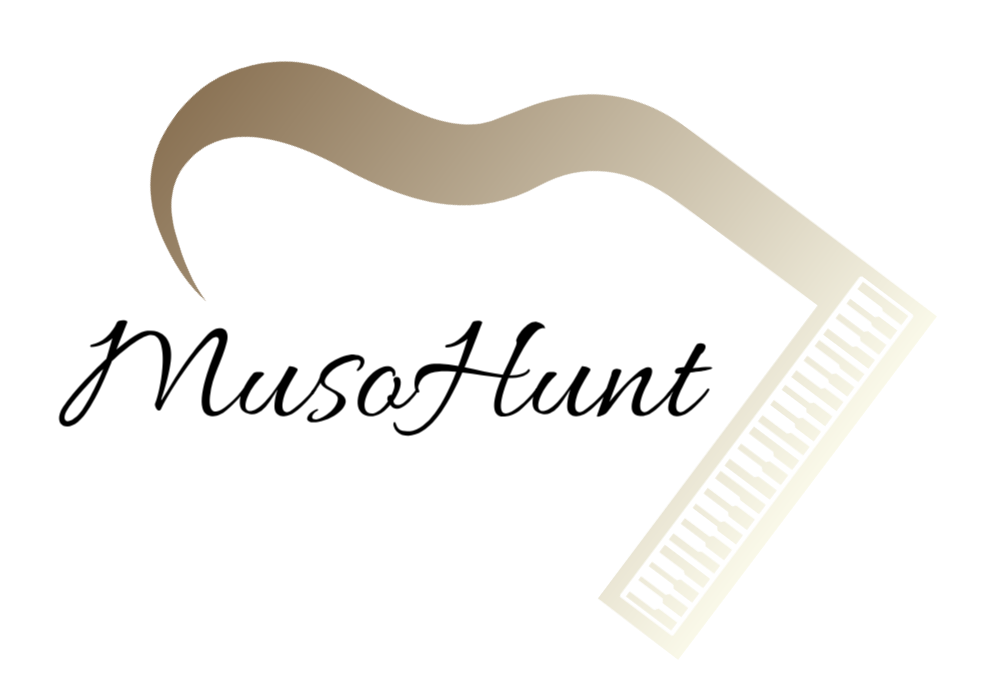
Rain Zhang
Rain born in China, she was admitted to the Central Conservatory of Music in 2009 under the supervision of Professor Liang Chai, the then Director of the Central Conservatory of Music Violin Department. In 2013, she was admitted to the Central Conservatory of Music Graduate School and awarded a full national scholarship. In 2014, she got into the San Francisco Conservatory of Music, to joined in the famous American violin educator and performer Wei He’ studio with a scholarship and later granted the degree of Master of Music and Performance Study Diploma. In 2018, she became a Ph.D. candidate at UT Austin Butler School of Music. In 2020, she joined the Music Teaching program at the University of Melbourne to pursue a Master of Music Teaching.
While pursuing her undergraduate degree, she was a member of the China Youth Symphony Orchestra and traveled across China to give performances; she was a resident performer at Central Conservatory Baroque Ensemble as well, and had performed in the Beijing Concerto Hall and The National Grand Theatre many times . In 2014, she was invited to perform Bach Concerto For Two Violins in D Major together with her instructor Liang Chai and the orchestra of Central Conservatory Preparatory school at Beijing Concert Hall. During the period of her studying in the U.S, she managed to hold several solo recitals and complete multiple performances with SFCM Symphony Orchestra and SFCM Baroque Chamber Orchestra, the audiences are always take delight in talking about her confident performance style and excellent music expression.
From 2007 to 2013, she was the violin instructor of the Winds of Music Children’s Music Charity Foundation in Beijing. From 2014 to 2018, she served as the Violin Department Director at K&K School of Music of San Francisco Bay Area, during which her focus was assisting students to pass grading tests and entrance exams. The passing rate and admission rate of her students was as high as over 90%.
Reflections on Music Education:
To me, “training” is different from “education” as the former is designed to teach students skills, while the latter focuses on inspiration and thinking, things that beyond skills, instructors can offer.
Instructors shall show students how to fish, instead of directly giving them fish. My own experience as a student indicates that some of our education practices place too much emphasis on skills and music knowledge, while too little on thinking.
The mission of music education, in my opinion, is not merely about fast finger movements or a considerable number of music pieces one can remember. Rather, it is to explore aesthetics, to know the world and to think about life. Yet, it is fascinating to see that when you give a little more thought on music itself, certain “challenges”, or in other words, functional problems regarding performance, are resolved before you know it. Perhaps, this is what people say, the fundamental remains the same.
About Grading Tests:
People learn musical instruments for different purposes. Some just want to have fun, while some aim to make achievements. As far as I’m concerned, grading test is one of the perfect methods that enable students to see they are making progress in a “visible” way. Even for those who start their learning for fun, they will be inspired when positive feedbacks are received.
Admittedly, there are people who are anxious to achieve quick success from passing grading tests, but generally speaking, the advantages of grading tests outweigh the disadvantages. Otherwise, the grading test system would not be found in so many countries around the world. Instead of having a discussion over the benefits and drawbacks of grading tests, it is better to guide the students to have a positive attitude towards it and face up to this challenge in a healthy and natural manner. This shall be the job responsibility of our music educators.
What are the benefits of studio class and 1v1 lesson?
When I was pursuing my master’s degree in San Francisco, my professor would take me and my classmates out of the piano room from time to time, and make us perform in front of strangers or outside the school. Even if one was not completely familiar with her piece, she had to play. Such a “putting people on the spot” method of instruction failed to make me “an extrovert” who was so enthusiastic seeing people around that cannot help playing music. Nonetheless, it did, to a large extent, eliminate my insecurities and fear. The advantage of one-on-one instruction is evident as well. All of the instructor’s time is spent on one student, which brings about high efficiency, detailed explanation and timely rectification.
The advantage of big classes is that students have the opportunity to perform in front of audience, which is similar to playing on stage and thus may not be as smooth as one-on-one performance. Big classes provide students with “immunity to audience” and confidence to music, which is something that one-on-one instruction is unable to offer. Big classes and one-on-ones, each with their own strengths, bring students experience that is vital to their learning.
Learning Experience:
When I was two years of age, I heard CCTV News theme song by chance and fell in love with it. The leading part in that song is violin. Later, when my family asked if I wanted to learn to play some instrument, I chose the violin immediately. At that time, however, there was no tiny violin in my hometown. Therefore, I did not begin to learn to play the violin until four when I was tall enough to hold one.
Given my innate problem in physical coordination, I repeatedly took wrong paths in the early stage of my learning. At first, no one believed music would become my major, as I was not good at it and no one in my family was an artist. Naturally, I practiced playing the violin occasionally just for fun, seeing it merely as a hobby.
In an instant, I was 15 and took my first class with Professor Liang Chai in Beijing. I was just trying to broaden my vision and never thought Professor Chai would tell me that, “you have an amazing sense of music and your own understanding. You will regret if you don’t major in it. Skills are less important because they can be quickly learned. I think you’re going somewhere. Do you want to come with me and give it a try?” For a 15-year-old teenager, such a compliment was nothing short of the sound of heaven! I was aware that the Central Conservatory of Music has a lower admission rate than Tsinghua University. In other words, I would almost certainly fail if I took the exam. But I just wanted to have a try even if there was no chance. At least I wouldn’t regret it someday.
My mother and I set off from two different places and gathered in Beijing. My “retreat” of ten hours a day officially began. Those three years was my “War of Resistance”. The sprint time of everyone else’s was one year, but that of mine was three and a half. It was truly painful. Ten hours a day. Six days a week. The rest of the week was going out for class and having some fresh air on the way. My room was even soundproofed so that I could practice for a few more hours during the night. I managed to “endure” such three years of complete darkness and day and night reversal.
In 2009, I graduated from high school and was admitted to the Central Conservatory of Music even though no one had any faith in me. When my college years was over, I took the postgraduate exam and was admitted to the Central Conservatory of Music Graduate School with a full national scholarship to pursue a master’s degree. Afterwards, at the suggestion of my supervisor Chai Liang, I decided to give up this master and headed to the San Francisco Conservatory of Music to learn from Professor He Wei. Since then, my overseas study began to unfold.
Looking back, the wrong paths are actually of great help to my instruction. The gifted do not know how to teach as gift makes it easy for them to achieve what others can only achieve through hard work. But after all, the number of the gifted is limited.
I took wrong paths, which makes it easier for me to get the confusion and anxiety one feels when certain skill barriers seem impossible to overcome. My hope is to help more people like me, i.e. students who love music but are trapped as well as beginners who may make the mistakes I’ve made, so that they can fulfil their aspirations with the healthiest state of mind and the greatest enthusiasm. That is probably why I am committed to music education.




